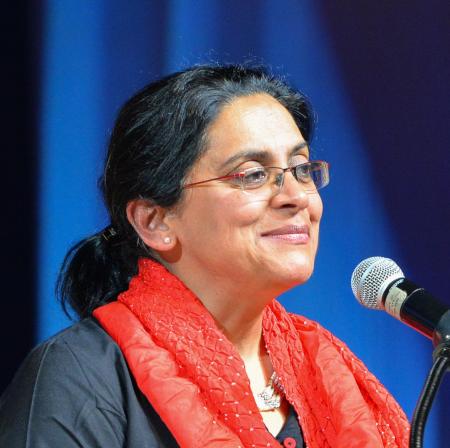Every Child in School and Learning Well: The Challenges of Elementary Education in India
3501 Sansom Street
Philadelphia, PA 19104
About the Speaker:
Rukmini Banerji is the Chief Executive Officer of Pratham Education Foundation. Until recently, she was responsible for Pratham's programs and activities in several major states like Uttar Pradesh and Bihar, and was also the Director of ASER Centre (the research and assessment unit of Pratham). Initially trained as an economist in India, she earned her B.A. from St. Stephen’s College and attended the Delhi School of Economics. She was a Rhodes Scholar at Oxford University and earned her Ph.D. from the University of Chicago where she also did post-doctoral research at the Population Research Centre. Dr. Banerji worked as a program officer at the Spencer Foundation in Chicago for several years before returning to India in 1996.
Since 1996, Dr. Banerji has been with Pratham, one of India’s largest NGOs, working in education. She has been a member of the national leadership team of the organization and has extensive field experience both in program implementation and in research. She has led the Annual Status of Education Report (ASER) effort since it was launched in 2005. ASER has been acknowledged nationally and internationally for its innovative model of household-based, citizen-led assessment which has impacted education policy and practice within India and has also been adapted for use in several countries in Africa and Asia.
In 2008, Dr. Banerji was awarded the Maulana Abul Kalam Shiksha Puraskar by the Government of Bihar, India (the first recipient of this award). Over the years, she has represented Pratham and the ASER Centre in various national and international forums and is a member of committees both in India and abroad. She writes frequently on education in both Hindi and English dailies in India and enjoys writing books and stories for children.
About the Lecture:
In countries like India, impressive progress has been made in schooling; well over 95 percent of children are now enrolled in school. But the status of children’s learning shows that the situation is far from satisfactory. Evidence suggests that in Grade 5, only about half of all enrolled children can read or do arithmetic expected at a Grade 2 level. Faced with this crisis, what have been some promising pathways for moving forward? This lecture will review learnings from ten years of ASER (Annual Status of Education Report), discuss evidence from interventions for improving basic learning that have been tried on a large scale in India in recent years, and will examine whether or not this new “thinking” in India has the potential to go beyond schooling to improve learning.

